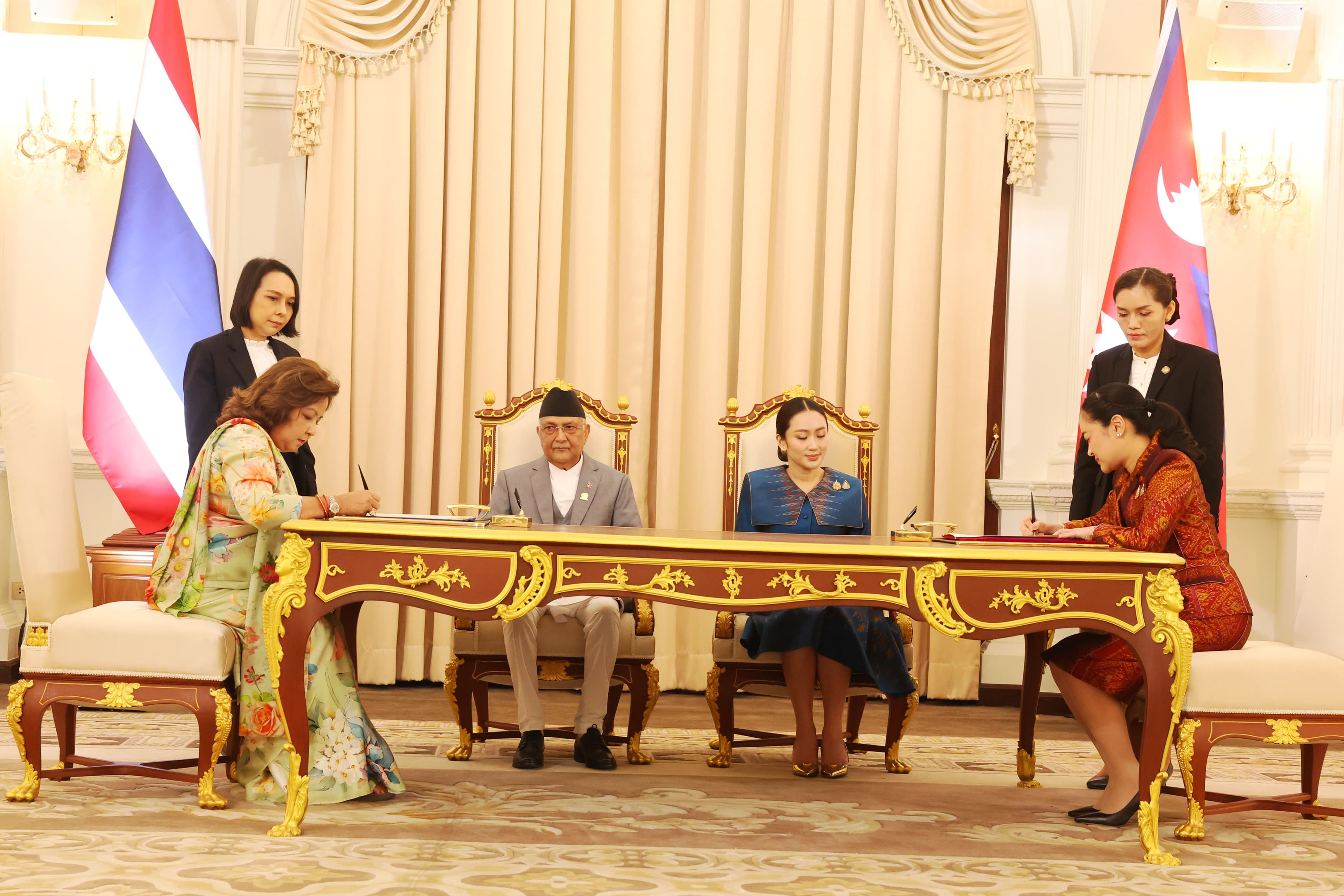KATHMANDU, Jan 20: Nepal's gross domestic product (GDP) could reach Rs 13,100 billion (over $120 billion) in 2045, which is 39 percent more than with existing trading mechanisms, with accelerated power trade (APT) between India and Nepal, according to a report.
The report, 'Economic Benefits from Nepal-India Electricity Trade,' released on Thursday, also states that the growth in GDP is driven in part by the three-fold increase from Rs 310 billion in 2030 to Rs 1,069 billion in 2045 in revenue earned from electricity trade.
Highlighting the key findings of the report, Kirit Parikh, chairman of Integrated Research and Action for Development (IRADe), which conducted the study, said that the increased power trade will also fuel Nepal's per capita electricity demand to jump from the current 139 kWh/year to 1,500 kWh/year by 2045.
The report attributes it to increased domestic hydropower production that is 34.4 Gigawatt (Gw) in 2045. "Per capita electricity demand reflects strongly on the Human Development Index (HDI) of a country as increased access to electricity is directly linked to better quality of life," it added.
The first of its kind study was conducted by the IRADe under the fourth phase of the South Asia Regional Initiative for Energy Integration (SARI/EI) Program. SARI/EI is a United States Agency for International Development's (USAID) program that works to promote cross-border electricity trade for revitalizing and accelerating regional economic development in South Asia.
Member of National Planning Commission (NPC) Swarnim Wagle, Michael Gonzales, Chargé d'Affaires at the US Embassy in Kathmandu, and Mala Narendra, Second Secretary at the Indian Embassy in Kathmandu, released the report amid a function on Thursday.
The report analyses the potential of cross-border electricity trade (CBET) between Nepal and India, and its feasibility and impact on the economy, power systems and power infrastructure of both countries.
Wagle, on the occasion, said that the report will be useful for the NPC while preparing periodic plans. "USAID's support and assistance is extremely useful for Nepal particularly in expansion of the transmission capacity," he said, adding that electricity trade and hydropower development can significantly energize Nepal's economy and can help in the process of industrialization. "Both the countries stand to gain from India-Nepal electricity trade and going forward. Bangladesh and other South Asian countries also stand to reap benefits from the power trade," he added.
Based on the IRADe-System for Analysis of Power Trade and Economic Growth (I-SAPTEG) modeling system, the research uses five models -- three power system models and two macro-economic models to capture the impacts of electricity trade in India and Nepal under three scenarios -- trade, business as usual and delayed capacity addition.
Similarly, Gonzales said that Asia, which is the fastest growing region in the world, lacks reliable power infrastructure. "With optimum utilization of resources and a coherent regulatory framework in place, better regional integration could be achieved through
CBET. The report rightly points out Nepal can gain tremendously from CBET," he added.
For India, the benefits are more in terms of lower electricity system costs due to electricity imports from Nepal, he added. "Additionally, the import of hydropower electricity from Nepal will reduce carbon emissions of the power sector in India as the country's electricity generation is largely coal-based."
Calling the findings of the report 'a win-win opportunity for both India and Nepal,' Mala Narendra said that India was committed to cross-border electricity trade in South Asia.
"To facilitate this, India's Ministry of Power in consultation with Ministry of External Affairs recently issued the 'Guidelines on Cross Border Trade of Electricity',” he added.
However, experts have been claiming that the guideline is against the ethos of Power Trade Agreement (PTA) signed between Nepal and India.
On the occasion, Jyoti Parikh of IRADe said that the power systems of the two countries are linked for different periods -- peak and off-peak hours -- to capture the compatibility for trade in the model which gives very different insights. "Our aim was to see if Nepal too can follow Bhutan's example in transforming its economy. The primary objective of the study is to provide critical research on the viability and advantages of CBET so as to assist policy-makers in making strategic decisions," she added.
Trade and Investment Policy in South Asia









































